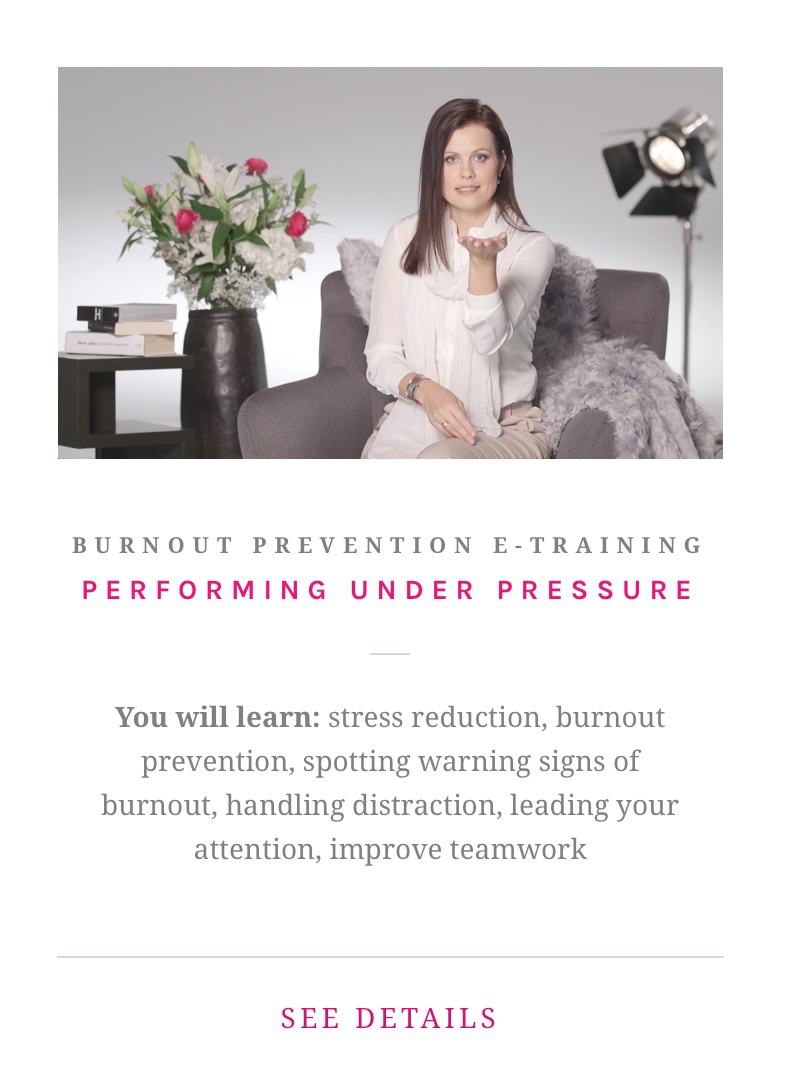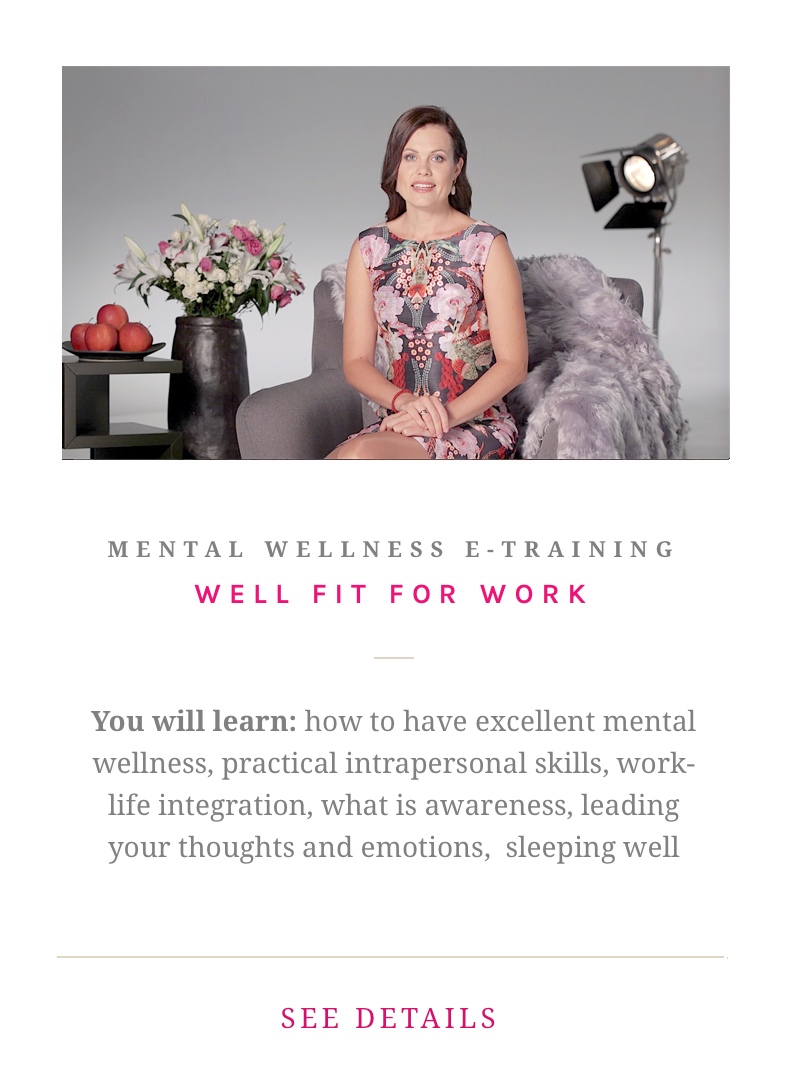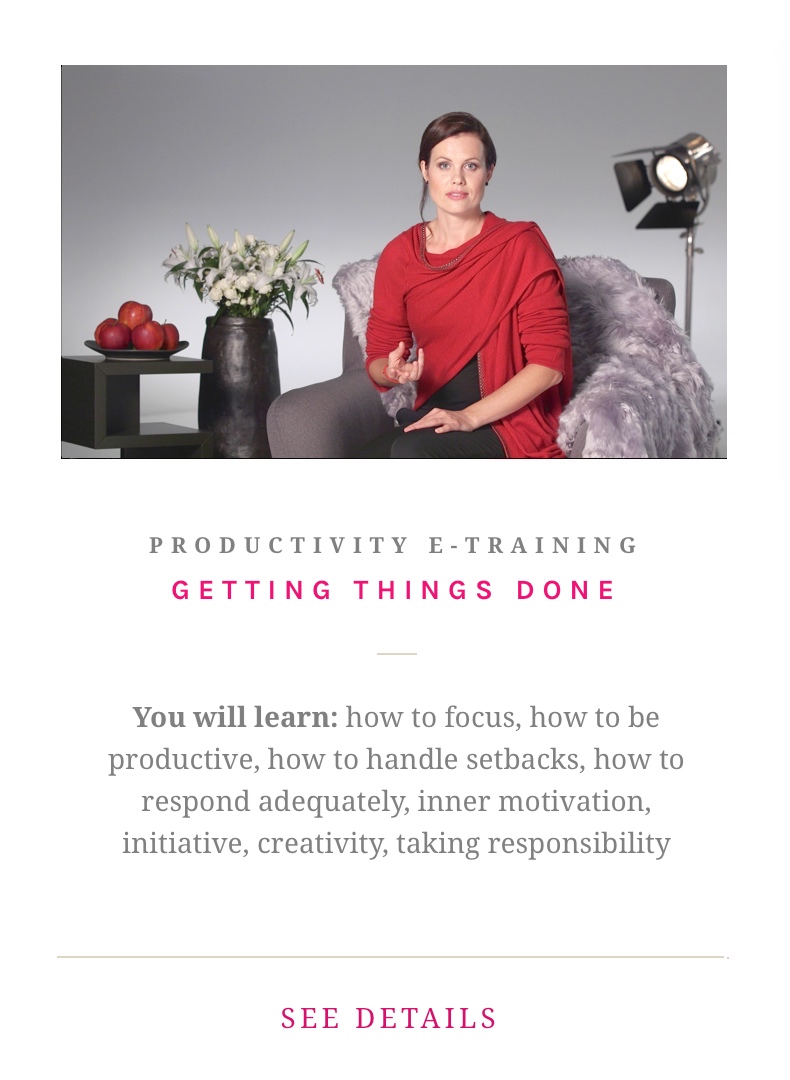The poll among over 1000 HR leaders and C-suite executives stated that "95% of HR leaders say working in HR is simply too much work and stress". A staggering 84% of the polled HR leaders frequently felt stress, and 81% reported that they experienced some stages of burnout. (Sage, 'The changing face of HR in 2024').
The question is: Who takes care of HR?
Reducing stress and preventing burnout is a workplace-wide effort that thrives when leaders set the example and commit to training their minds first.

Besides questioning "Who is looking after HR?" we also need to ask: Who takes care of leaders?
Calm and kind leadership truly matters and the source of it is self-leadership. For this, you need to slow down and secure your own mind health first. Keeping a calm mind while amid the extreme speed of doing things is a paradox. Only a calm mind can make instant decisions.
People mostly trust leaders, it is up to you to avoid burning out or becoming toxic.
The 2024 survey 'Mental Health at Work: Managers and Money' by The Workforce Institute UKG among 3 400 employees and managers in 10 countries, pointed out that 69% of employees said that managers have just as much of an impact on their mental health as their spouses and 51% stated that managers have more impact on their mental health an impact than their doctors and therapists.
HR or a leader/manager who feels tired and stressed, or even worse is nearing burnout or experiencing mental health issues, has a hard time securing high engagement and productivity figures. If you don’t assist yourself first, you will lose what is left of your inner peace and ability to work.
According to the Workforce Institute UKG study, 81% of employees would prioritize good mental health over a high-paying job.

Other surveys demonstrate that levels of burnout within the HR profession are reaching new heights as well. According to a Gartner survey, 71% of HR leaders claim that burnout among HR teams is now a bigger challenge than pre-pandemic. Red warning lights are flashing!
The global pandemic made the HR profession more challenging. In 2021, the e-days revealed that HR and staffing professionals were the sector with the third-highest rate of stress-related sick leave, and there was a 70% rise in the number of stress-related absences among HR professionals in 2020 compared to the previous year.
The 2020 Cigna Report, stated: “91% agree that colleagues’ stress impacts the workplace with a higher degree of negative impacts such as a depressing atmosphere and lowering morale, and yet employers are not doing enough to address the issue.”
Now, after the forced remote work period, we are more aware that stressors exist everywhere, and as long as you react to them, you will experience stress.

What is stress and how to solve stress challenges?
Mental wellness pioneer Dr. Helena Lass wrote, "Stress can be defined as the adverse inner reaction that people experience when they come into contact with excessive pressures that they fail to handle."
Yes, stress is a subconscious inner reactivity problem that follows people, who lack proper intrapersonal skills, everywhere. When your mind is irritated, anxious and full of extreme speed your wellbeing is the biggest loser.
Stress initiates the fight or flight response, a complex reaction of neurologic and endocrinologic systems.
When people fight (have struggles in their minds or fight between themselves) or leave the workplace, they fail to deal with work challenges. Their struggles within their own minds simply reduce their ability to be engaged at work
Only a person who leads their intrapersonal processes with ease is good at holding focus, finding creative solutions and taking initiative. Training intrapersonal skills has the power to improve employee engagement (the graph below shows best-practice workplaces vs average work engagement).
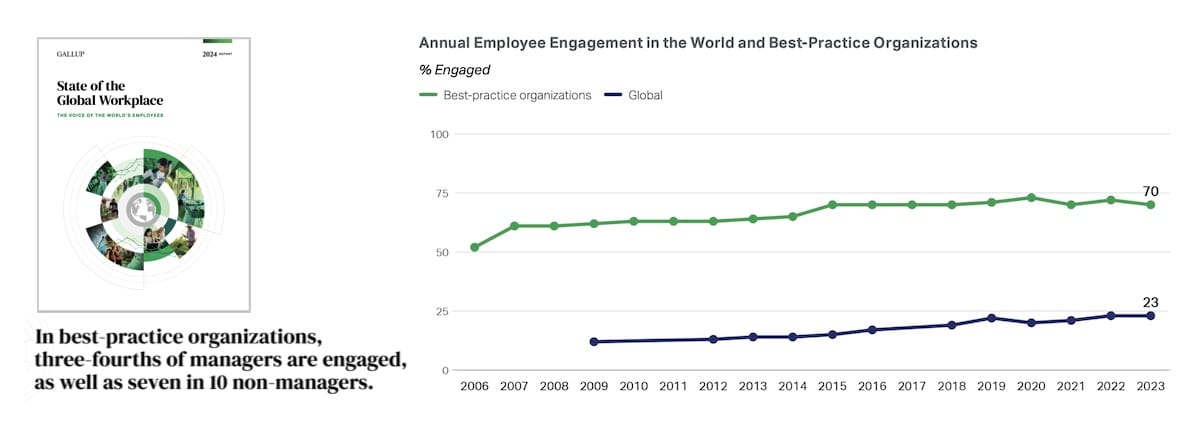
Stress stems from our subconscious inner reactive patterns.
No stress trigger matters if you are free from automatic inner reactivity.
Inner calmness is what allows you to keep focus, take initiative and make fast decisions.
Yes, it is your calm mind that allows you to respond adequately!
Please click play below and allow world-class mental wellness expert Dr. Helena Lass to reveal more in just 1 minute.
|
Burnout is 100% preventable if you have excellent intrapersonal skills
Stress is the major pathway to health issues and employee burnout. The final phase of burnout has a staggering 86-92% overlap with depression.
Removing stress makes burnout and most work-related mental health issues preventable.
Stress can also increase the risk of physical health issues, such as cardiovascular diseases, muscle tension, obesity, sleeplessness, etc.
A calm and fit mind is always interested in having a fit physical body.
We remind you that a fit body alone doesn't secure a fit mind. If it did, professional athletes would never experience stress or mental health issues, but they do! So, you need to train both, your mind and your body!
When you lose your mental wellness, you become vulnerable to health problems. Learning intrapersonal skills is the most efficient prevention strategy as all skills are personal and with you for life.
Stress and burnout are most common in successful and caring professionals, like HR position holders, lawyers, IT professionals, bankers, investment professionals, medical doctors, etc. Stress and burnout also hunt those with high responsibilities, such as business leaders and entrepreneurs.
When your work is intensive and demanding, performing under pressure isn't easy. However, you can learn to understand your inner domain and obtain good self-leadership abilities you can reduce your inner pressure.

PROACTIVE MENTAL WELLNESS APPROACH SUPPORTS YOU AND YOUR TEAM
Losing people to stress, burnout and mental health issues triggers an often unnoticed chain reaction that undermines productivity, performance, and turnover.
High performers, who are most open to stress and burnout, are hard to replace due to their deep expertise, limited task delegation, and long learning curves for newcomers. Business success stems from years of personal contacts, earned trust, and healthy relationships with customers.
It makes sense to keep your talent. However, you as an HR professional need to start with yourself!
As you noticed, the fundamental stress problem isn't out there, it is your inner reactivity. Because our schools lack intrapersonal education and mental wellness lessons, we experience a poor ability to lead processes within our minds. No surprise that 1 in 3 working-age individuals faces mental health challenges or illnesses (burnout, however, is not a disease).
A stressed and anxious mind can't be engaged, it deals with its own inner struggles. This is the result of the reactive approach to mental health has dominated.
Without intrapersonal skills, it is impossible to keep ourselves healthy and do our work well (see the left-hand side of the graph below).
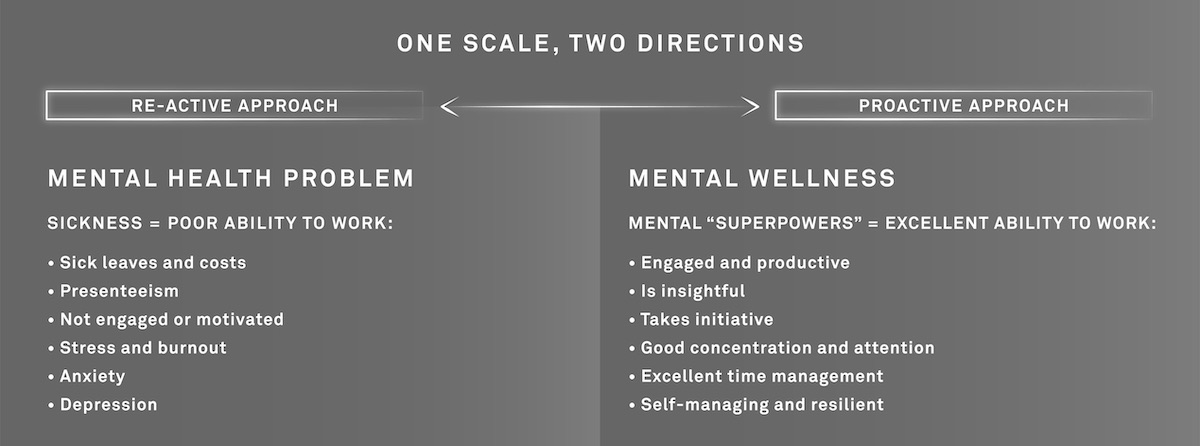
Having a pre-emptive approach that focuses on securing the mental well-being of leaders, HR professionals and employees is what can prevent poor health and productivity issues (see the right-hand side of the graph above).
It is such a new proactive mental wellness approach that distinguishes Wellness Orbit from all other mental wellness or mental fitness offerings out there.
Our founders have come up with a systematic proactive mental wellness approach to calm your mind and made it an easy-to-use and enjoyable fully digital learning journey,
Learning and applying intrapersonal skills reduces stress and improves employee engagement and productivity simultaneously. It equips you and the people you support with the ability to respond more consciously. It gives people the inner power to be more responsible and remain healthy.
We are here to help you and your team!
Take 1,5 minutes to calm down and listen to the message from our Managing Director Kaur Lass. Let his inner calmness inspire you.
Conclusion
With 9 out of 10 employees experiencing stress, many struggle to take initiative and responsibility, resulting in an average employee engagement rate of just 20%. High stress levels and the various stages of burnout severely undermine productivity and overall work performance.
Businesses that champion proactive mental wellness create engaged teams, sustainable growth, and loyal customers. Let's be honest, only fit and calm minds work well!
It is wise to remember that the same practical intrapersonal skills that keep our minds calm, fit and well will also help people to focus, access creativity at will, have access to intuition and insights, take conscious responsibility, etc.
Systematic stress reduction and burnout prevention is an investment because it brings up to tenfold ROI, as our customers have seen.
The combination of a workplace-wide proactive approach and training is the most efficient outlook there exists according to Deloitte UK. Don't stop here, take action!
|


